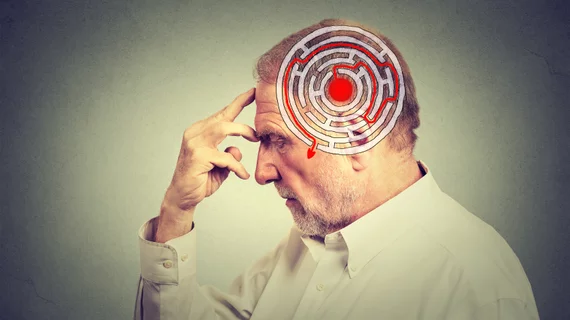CTA scans for stroke double as quick, cost-effective tool for diagnosing COVID-19
CT angiography (CTA) is already a frontline tool clinicians rely on for evaluating stroke patients, and new research suggests these exams can also help diagnose COVID-19.
Neurologists from Albert Einstein College of Medicine tested their approach in nearly 60 patients during the height of New York City's outbreak. By combining CTA results with self-reported symptoms, the team diagnosed individuals with the novel virus quicker than nasal swab testing and with more than 80% accuracy.
Lead author Charles Esenwa, MD, MS, a stroke neurologist at the New York institution, and colleagues shared their findings Friday in the journal Stroke.
“Every second counts when treating a person experiencing a stroke,” Esenwa said in an Oct. 30 statement. “Conducting a CTA is already part of the stroke management process, and these scans provide an opportunity to assess the lungs for signs suggestive of COVID-19.”
To reach their conclusions, the group retrospectively analyzed 57 acute ischemic stroke patients treated across three hospitals between March and April. Each received a CTA scan within 24 hours of admission. Esenwa et al. used those images to evaluate the upper area of the lungs for COVID-19 pneumonia.
Pairing patient-reported symptoms with CTA scans, they found, was 83% accurate at spotting the virus, with results arriving prior to nasal swab diagnoses. In total, 30 individuals were handed a COVID-19 diagnosis.
Despite a few limitations, including the fact that their analysis was performed in an area with a high number of cases, Esenwa et al. urged hospitals to incorporate the cost-effective test into their own practice.
“Screening questionnaires alone are often inaccurate because of the absence of symptoms or the patient is unable to speak because they are suffering from an acute stroke,” Esenwa said. “Early diagnosis via CT scans has helped our center protect other patients and staff through early isolation, and it has also allowed us to start early supportive care for those suspected of having stroke who are COVID-19 positive.”

